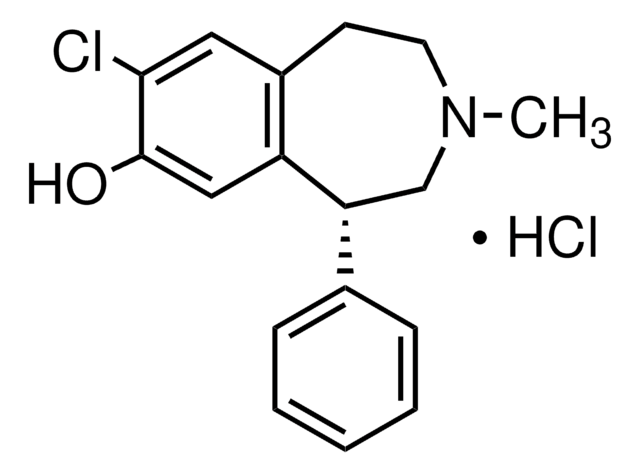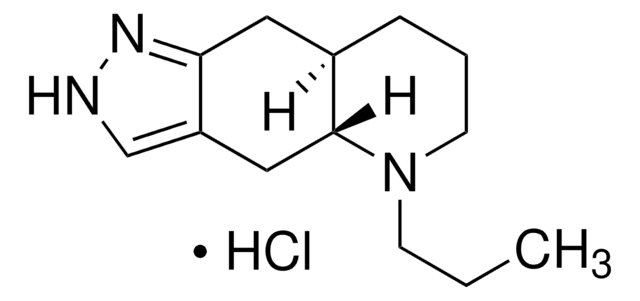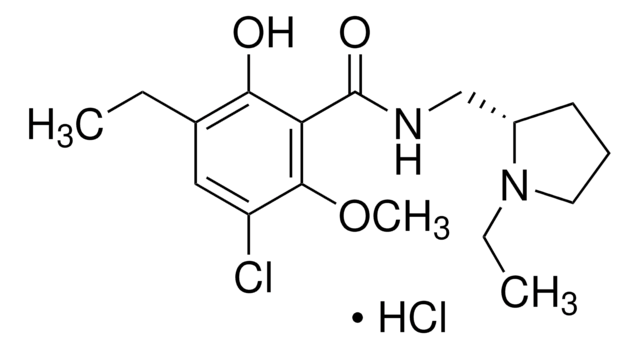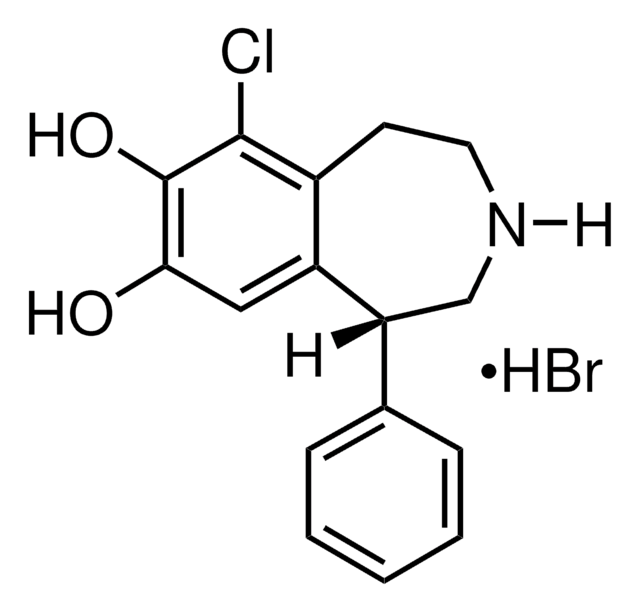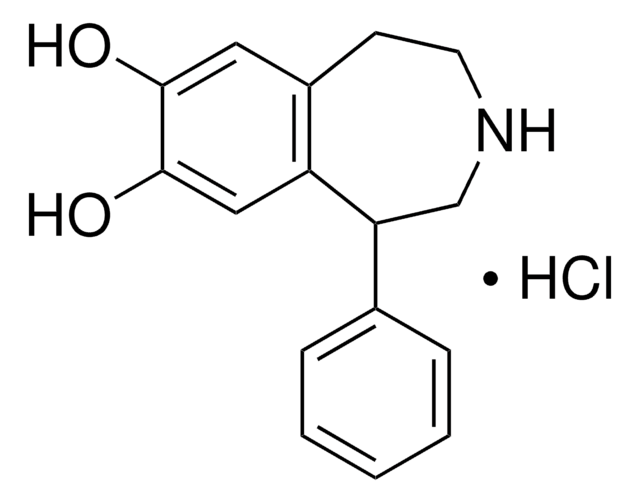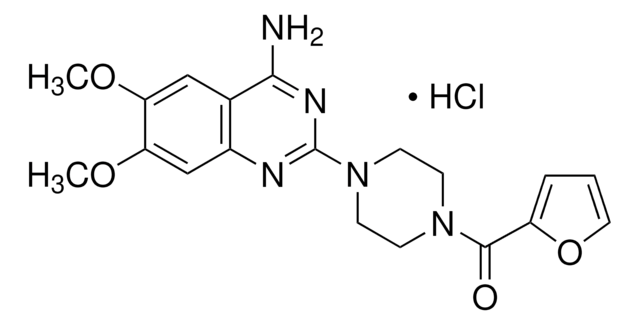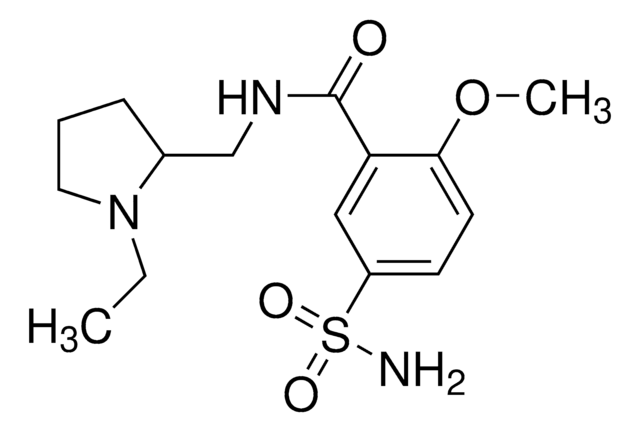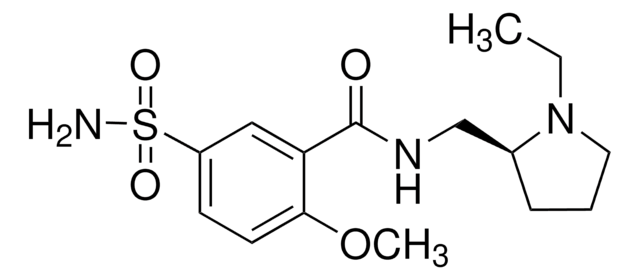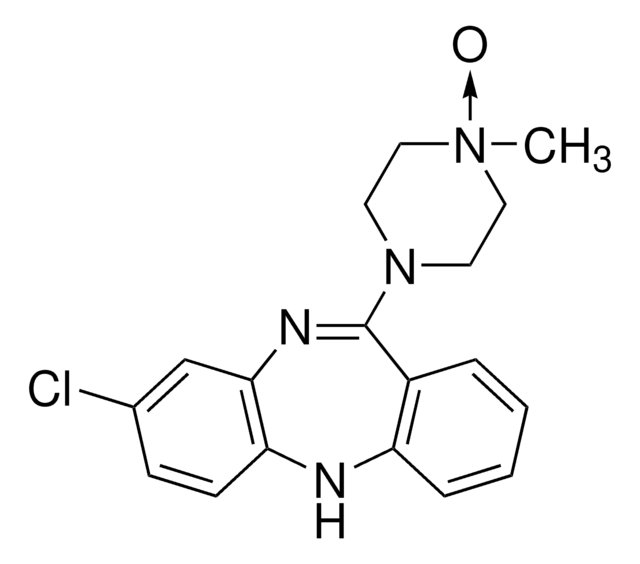R121
S(−)-Raclopride (+)-tartrate salt
>97%, solid
Synonym(s):
3,5-Dichloro-N-(1-ethylpyrrolidin-2-ylmethyl)-2-hydroxy-6-methoxybenzamide (+)-tartrate salt
About This Item
Recommended Products
Quality Level
Assay
>97%
form
solid
color
white
solubility
H2O: 89 mg/mL
SMILES string
O[C@H]([C@@H](O)C(O)=O)C(O)=O.CCN1CCC[C@H]1CNC(=O)c2c(O)c(Cl)cc(Cl)c2OC
InChI
1S/C15H20Cl2N2O3.C4H6O6/c1-3-19-6-4-5-9(19)8-18-15(21)12-13(20)10(16)7-11(17)14(12)22-2;5-1(3(7)8)2(6)4(9)10/h7,9,20H,3-6,8H2,1-2H3,(H,18,21);1-2,5-6H,(H,7,8)(H,9,10)/t9-;1-,2-/m01/s1
InChI key
QULBVRZTKPQGCR-NDAAPVSOSA-N
Gene Information
human ... DRD2(1813)
Application
- to study the role of the D2 receptor in mediating ventrolateral PAG (vlPAG)/dorsal raphe dopaminergic antinociceptive effect in animals
- in pharmacological and behavioral studies performed with Thap1 null mice
- to determine the relationship between Ca2+ transients and dopamine neuron activity in rats
Biochem/physiol Actions
Packaging
Caution
Storage Class Code
11 - Combustible Solids
WGK
WGK 3
Flash Point(F)
Not applicable
Flash Point(C)
Not applicable
Personal Protective Equipment
Choose from one of the most recent versions:
Already Own This Product?
Find documentation for the products that you have recently purchased in the Document Library.
Customers Also Viewed
Our team of scientists has experience in all areas of research including Life Science, Material Science, Chemical Synthesis, Chromatography, Analytical and many others.
Contact Technical Service
